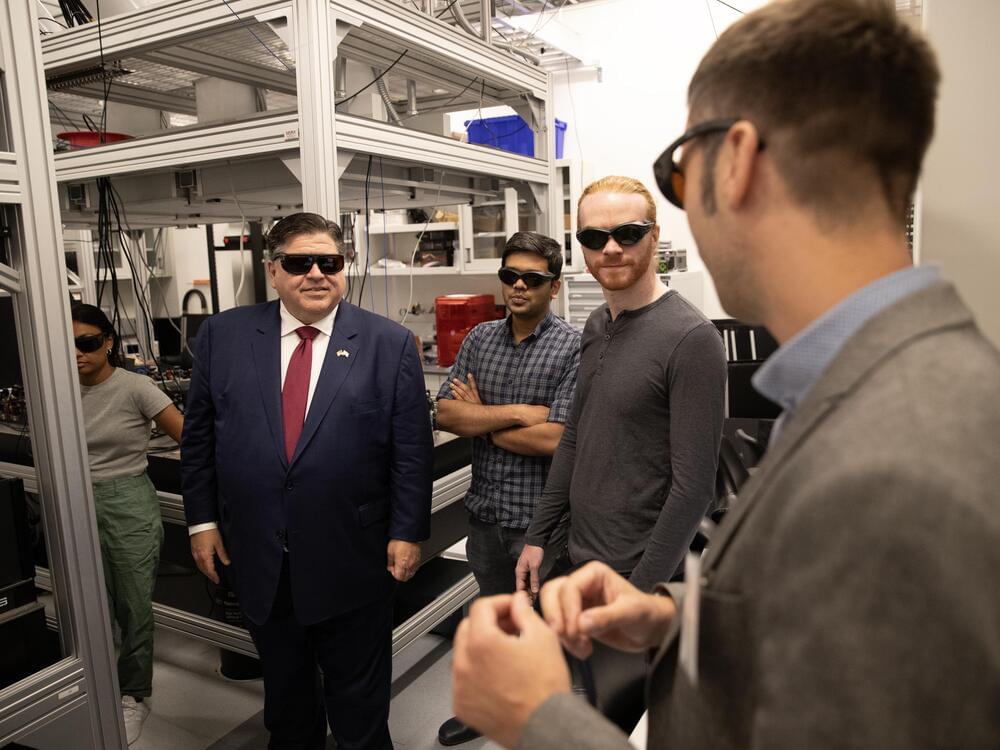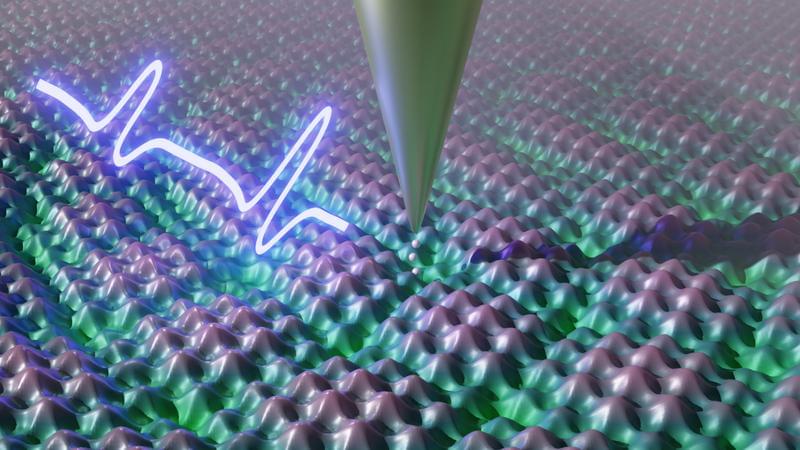Page 899
Jul 16, 2024
Tesla quietly adds three new climate settings, one of which helps with phone calls
Posted by Genevieve Klien in category: climatology
Tesla has quietly added three new climate settings to its vehicles with a new Software Update, one of which will make phone calls more enjoyable without having to touch any controls.
Tesla’s climate control system is one of the most robust and advanced in any vehicle available on the market. Everything from cabin pre-conditioning to Dog Mode to the use of a heat pump, which helps fight range loss in the winter, is available on a Tesla.
However, the company is always improving its vehicles through Over-the-Air Software Updates. Most recently, Tesla rolled out Software Version 2024.26.1, which features a few new features that make the HVAC more advanced than ever before.
Jul 16, 2024
Researchers achieve unprecedented nanostructuring inside silicon
Posted by Genevieve Klien in category: electronics
Silicon, the cornerstone of modern electronics, photovoltaics, and photonics, has traditionally been limited to surface-level nanofabrication due to the challenges posed by existing lithographic techniques. Available methods either fail to penetrate the wafer surface without causing alterations or are limited by the micron-scale resolution of laser lithography within Si.
Jul 16, 2024
The 2 Longest-Running Sci-Fi Shows Ever Are Finally Teaming Up
Posted by Genevieve Klien in category: futurism
Star Trek and Doctor Who will have a formal, IRL crossover at San Diego Comic-Con this year. Here’s what it means.
Jul 16, 2024
Illinois lands federal partnership to further develop quantum projects
Posted by Genevieve Klien in categories: computing, quantum physics
Gov. J.B. Pritzker on Tuesday plans to announce a major partnership with the U.S. Department of Defense’s research and development agency to further expand quantum research in Illinois.
The Defense Advanced Research Projects Agency, or DARPA, will take residency on the state’s quantum campus to establish a program where quantum computing prototypes will be tested. The location of the campus is expected to be announced soon.
According to DARPA, the goal of the “Quantum Benchmarking Initaitive,” or QBI, will be to evaluate and test quantum computing claims and “separate hype from reality.”
Jul 16, 2024
Current AIs only have the IQ level of a cat, asserts Google DeepMind CEO
Posted by Roman Kam in categories: media & arts, robotics/AI
The CEO of Google DeepMind has compared the IQ levels of contemporary artificial intelligence (AI) agents to domestic cats. “We’re still not even at cat intelligence yet, as a general system,” remarked Hassabis, answering a question about DeepMind’s progress in artificial general intelligence (AGI). However, research is progressing fast, with some huge cash and compute investments propelling it forward. Some expect it to eclipse human intelligence in the next half-decade.
Demis Hassabis, the co-founder and CEO of Google DeepMind, made the artificial intelligence vs. cat IQ comparison in a public discussion with Tony Blair, one of Britain’s ex-Prime Ministers. The talk was part of the Future of Britain Conference 2024, organized by the Institute for Global Change.
Hassabis highlights that his work is not focused on AI but on AGI. It gives us more perspective on how he is looking at the computer vs cat comparison. Yes, a contemporary AI can sometimes write, paint, or make music in a convincingly human-like fashion, but an ordinary house cat has a lot more general intelligence. “At the moment, we’re far from Human-level intelligence across the board,” admitted Hassabis. “But in certain areas like games playing [AI is] better than the best people in the world.”
Jul 16, 2024
New LHC results refute Fermilab’s “hole” in the Standard Model
Posted by Shubham Ghosh Roy in category: particle physics
With new W-boson, top quark, and Higgs boson measurements, the LHC contradicts earlier Fermilab results. The Standard Model still holds.
Jul 16, 2024
Breakthrough in quantum microscopy: Researchers are making electrons visible in slow motion
Posted by Shubham Ghosh Roy in categories: materials, quantum physics
Physicists at the University of Stuttgart under the leadership of Prof. Sebastian Loth are developing quantum microscopy which enables them for the first time to record the movement of electrons at the atomic level with both extremely high spatial and temporal resolution. Their method has the potential to enable scientists to develop materials in a much more targeted way than before.
The researchers have published their findings in the journal Nature Physics (“Terahertz spectroscopy of collective charge density wave dynamics at the atomic scale”).
“With the method we developed, we can make things visible that no one has seen before,” says Prof. Sebastian Loth, Managing Director of the Institute for Functional Matter and Quantum Technologies (FMQ) at the University of Stuttgart. “This makes it possible to settle questions about the movement of electrons in solids that have been unanswered since the 1980s.” However, the findings of Loth’s group are also of very practical significance for the development of new materials.
Jul 16, 2024
How faster-than-light ‘tachyons’ fit into the special theory of relativity
Posted by Shubham Ghosh Roy in category: particle physics
In the world of physics, the idea of particles moving faster than light has always been a bit of a wild card. These particles, known as tachyons, have stirred up debates and skepticism.
However, a recent study published in Physical Review D has shaken up our understanding of these enigmatic particles.
For a long time, tachyons were considered more of a theoretical oddity than a scientific possibility. They seemed to conflict with the special theory of relativity, which has been a cornerstone of modern physics.
Jul 16, 2024
Self-organizing drone flock demonstrates safe traffic solution for smart cities of the future
Posted by Saúl Morales Rodriguéz in categories: drones, robotics/AI

After creating the world’s first self-organizing drone flock, researchers at Eötvös Loránd University (ELTE), Budapest, Hungary have now also demonstrated the first large-scale autonomous drone traffic solution. This fascinating new system is capable of far more than what could be executed with human pilots.
The staff of the Department of Biological Physics at Eötvös University has been working on group robotics and drone swarms since 2009. In 2014, they created the world’s first autonomous quadcopter flock consisting of at least ten units. The research group has now reached a new milestone by publishing the dense autonomous traffic of one hundred drones in the journal Swarm Intelligence.















